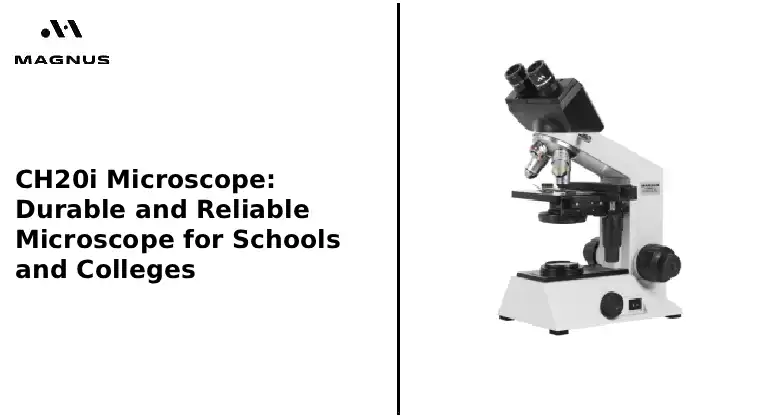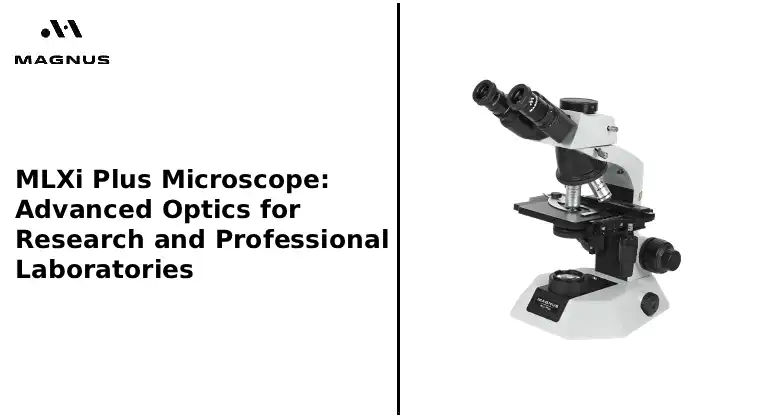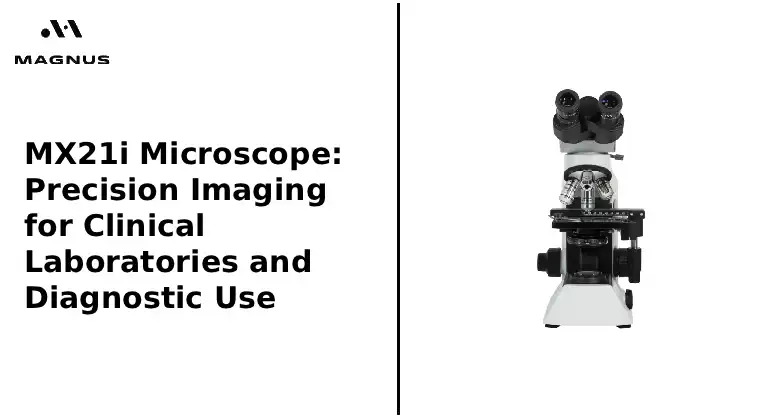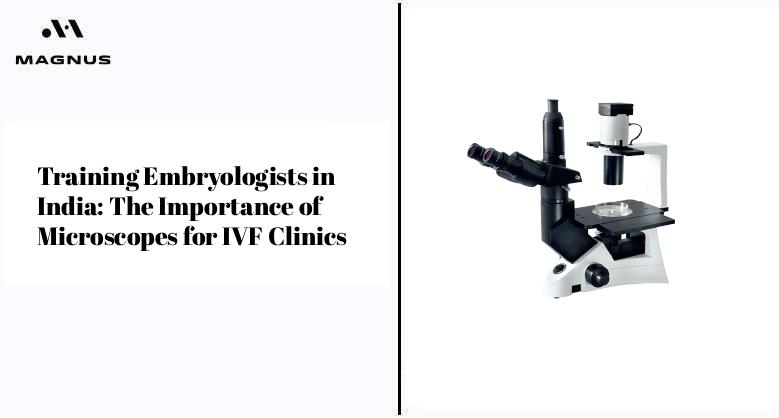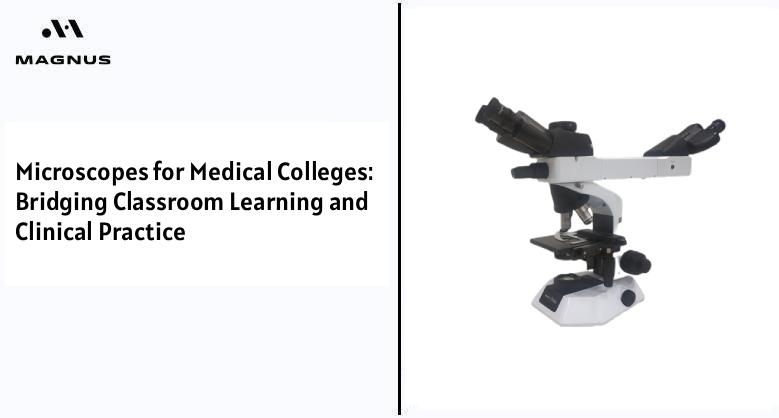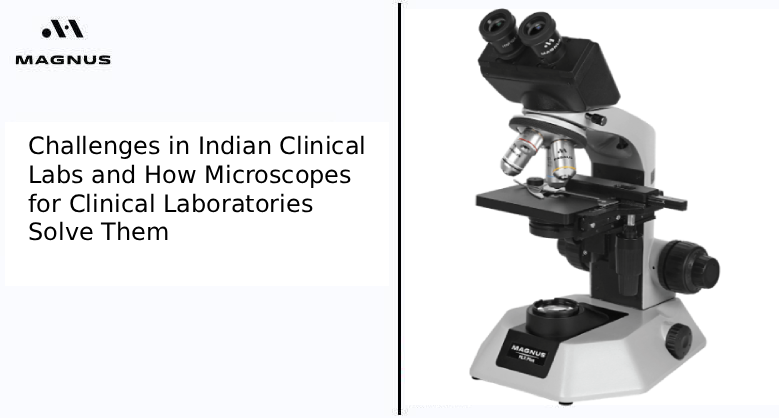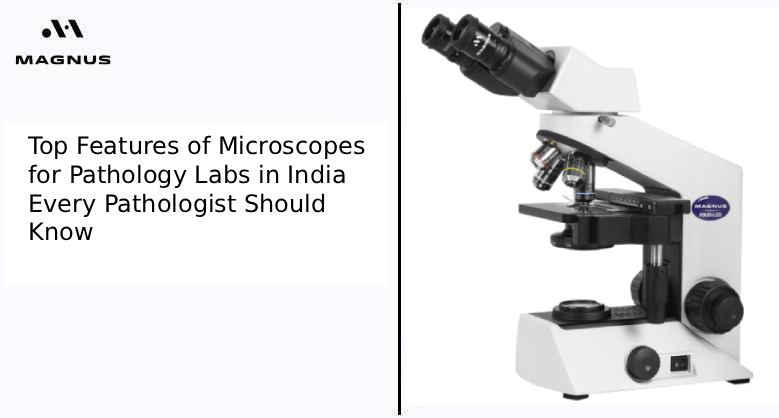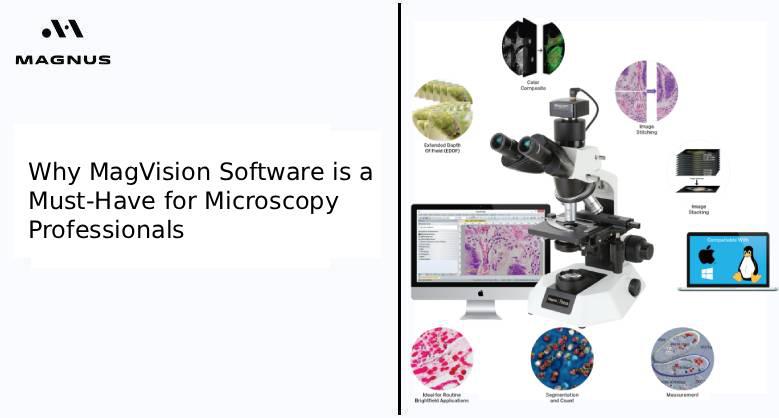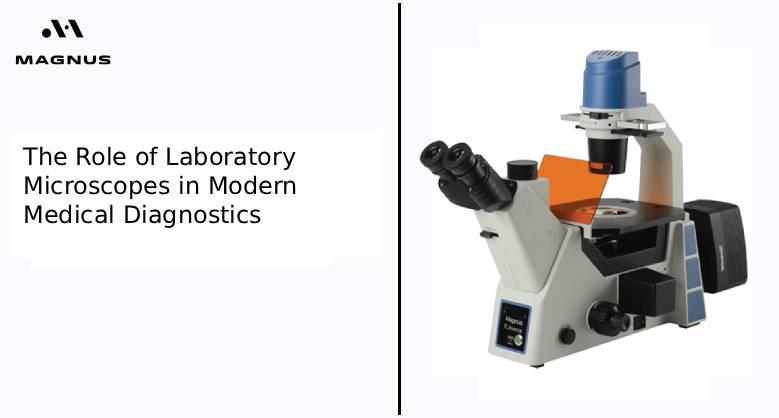Blog
CH20i Microscope: Durable and Reliable Microscope for Schools and Colleges
The CH20i educational microscope is designed for learning environments and classrooms where reliability is crucial. Institutions need technology that lasts for years, and teachers need something that functions without continual maintenance. Additionally, students need a tool that is simple to use.
MLXi Plus Microscope: Advanced Optics for Research and Professional Laboratories
The MLXi Plus research microscope is a new generation of optical tools made for labs that require improved imaging abilities and clarity. It offers dependable results in biomedical research, pathology, education, and material science and is designed for both routine diagnostic applications and high-end research.
MX21i Microscope: Precision Imaging for Clinical Laboratories and Diagnostic Use
In the case of diagnostic centres and clinical laboratories, precision matters a lot. Whether you’re counting cells or educating students, the quality of your microscope can significantly impact your results. The MX21i clinical microscope excels precisely in that area. Its design aims to provide clear images and a comfortable user experience with features that every lab professional will value during extended work hours.
Step-by-Step Guide for Using MLX Plus Microscope in School Labs
As the MLX Plus Microscope is simple to use and constructed with premium optics, it is frequently used in classrooms and basic labs. The MLX Plus educational microscope teaches students how to operate scientific instruments securely. Also, it helps them see cells, tissues, and microbes.
Training Embryologists in India: The Importance of Microscopes for IVF Clinics
Labs that specialize in embryology must have essential equipment like microscopes, especially for IVF treatments. From analysing eggs and sperm to tracking the growth of embryos, IVF laboratory microscopes are critical at every stage.
Microscopes for Medical Colleges: Bridging Classroom Learning and Clinical Practice
Microscopes are essential tools in the medical teaching process. They are more than just magnification tools, as they shape medical students' understanding of the human body at the cellular level.
Challenges in Indian Clinical Labs and How Microscopes for Clinical Laboratories Solve Them
Only a few thousand pathologists are available to analyse samples in India's thousands of testing facilities. This indicates a severe shortage of qualified microscopists. This gap may increase the chance of errors and delayed diagnoses.
Top Features of Microscopes for Pathology Labs in India Every Pathologist Should Know
Modifiable magnification settings, typically ranging from 40x to 1000x with a 10x eyepiece, are crucial for a clinical pathology microscope, enabling pathologists to identify pathogens and cellular alterations accurately.
Why MagVision Software is a Must-Have for Microscopy Professionals
In scientific and medical research, clear and accurate imaging is essential. Whether you're working in a hospital lab or a research facility, having the right imaging tools gives you reliable outcomes, and that's where MagVision Software comes in.
The Role of Laboratory Microscopes in Modern Medical Diagnostics
Wondering why microscopes are essential in medical diagnostics? Laboratory microscopes enable healthcare professionals to observe minute structures within cells and tissues, facilitating early detection of various diseases. These instruments are instrumental in identifying pathogens, blood disorders, and cancer cells, allowing for timely and accurate diagnoses.




